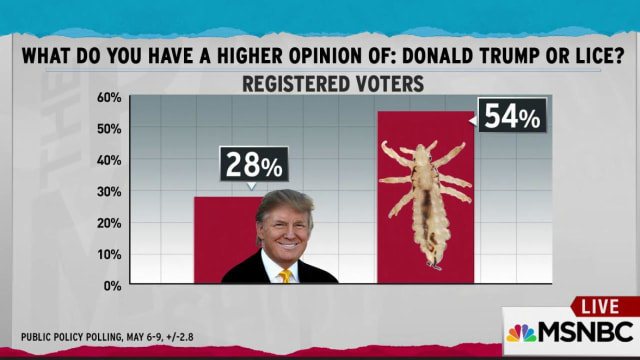Bernie Sanders' proposals could add less to the national debt than Donald Trump’s
http://www.phillyvoice.com/bernie-sanders-proposals-could-add-less-national-debt-trumps/
And we know Trumpy looooooves him some debt.
Did you read the article, Tibs?
It says literally NOTHING about how Trump's plan would increase the debt. NOTHING.
It does, however, mention that Uncle Bernie supposedly plans on paying for "universal health care, free college tuition, universal preschool and investments in clean energy. Overall,
he would increase government spending by 33 percent over the next decade."
Oh, and you forgot to mention this part of the article:
But economist Kenneth Thorpe, who helped Vermont design a proposed single-payer health care plan, has argued that Sanders’ plan will cost far more than he says it will. Based on Thorpe’s analysis, the CRFB added an additional $12.75 trillion to the debt.
Moreover, the Committee did not analyze what effect higher taxes and spending would have on economic growth. (The right-leaning Tax Foundation has.)
What effect on the economy will increased taxes have? The usual - lowered economic growth, below-projected tax revenue, and greater debt.
So exactly how would Trump's plan cost more??? The article does not bother to tell us.
So I looked it up on their site. The CFRB tells us:
"
Of the policy areas addressed on Donald Trump’s website, four – VA reform, tax reform, health care reform, and block-granting Medicaid – are likely to have fiscal implications that total more than $50 billion over a decade. Changes to gun laws and China trade policy, as outlined on the website, would likely have only minor direct fiscal implications. Meanwhile, his proposed changes to immigration reform (including building a wall on the U.S.-Mexican border) would have largely offsetting effects.
Overall, we estimate these policies would add $12.1 trillion to the debt under our central estimate. This is the result of $9.3 trillion in tax cuts, $0.55 trillion in additional health care costs, $0.5 trillion in VA reforms, and $1.75 trillion of interest costs."
Therefore, the added debt, the site argues, comes exclusively from tax cuts and additional interest on the debt.
Wait, didn't you post something from Paul Krugman, assuring us that interest on the debt was not a concern? So now it
is a concern?
The site than acknowledges, "Importantly, these estimates might
overstate the cost of the plan since they may not account for many of the unspecified revenue-raisers alluded to in existing material." Moreover, the estimates project that the reduced tax burden would yield average GDP growth of 5.75% over ten years. Compare that to the Obama "recovery."
As I documented recently, tax cuts almost invariably result in short-term increase in debt, but long-term reduction as the economic growth produces a flood of tax revenue, just as we saw 1981-2000:
So I don't simply dismiss the idea that the Trump proposal would increase national debt. That is a fair point. However, if the tax cuts result in massive economic growth yet again, as tax breaks have done for most of the past 70 years, then the increased debt would be less - perhaps much less - than projected.
Meanwhile, the Uncle Bernie projections count on massive tax increases not slowing down the economy, and the Federal government accurately predicting how much new programs will cost ... just like they did with Medicare:
In 1967 long-run forecasts estimated that Medicare would cost about $12 billion by 1990. In reality, it cost more than $98 billion that year. Today it costs $500 billion
http://reason.com/archives/2011/06/03/the-facts-about-the-government
So you will excuse me when I doubt the optimistic projections for Uncle Bernie's proposed spending, and instead deal in reality.
But it's nice that you now are concerned with the Federal deficit, debt and interest payments, Tibs. Are you going to continue having such concerns when a Democrat proposes spending trillions of dollars on some program?






